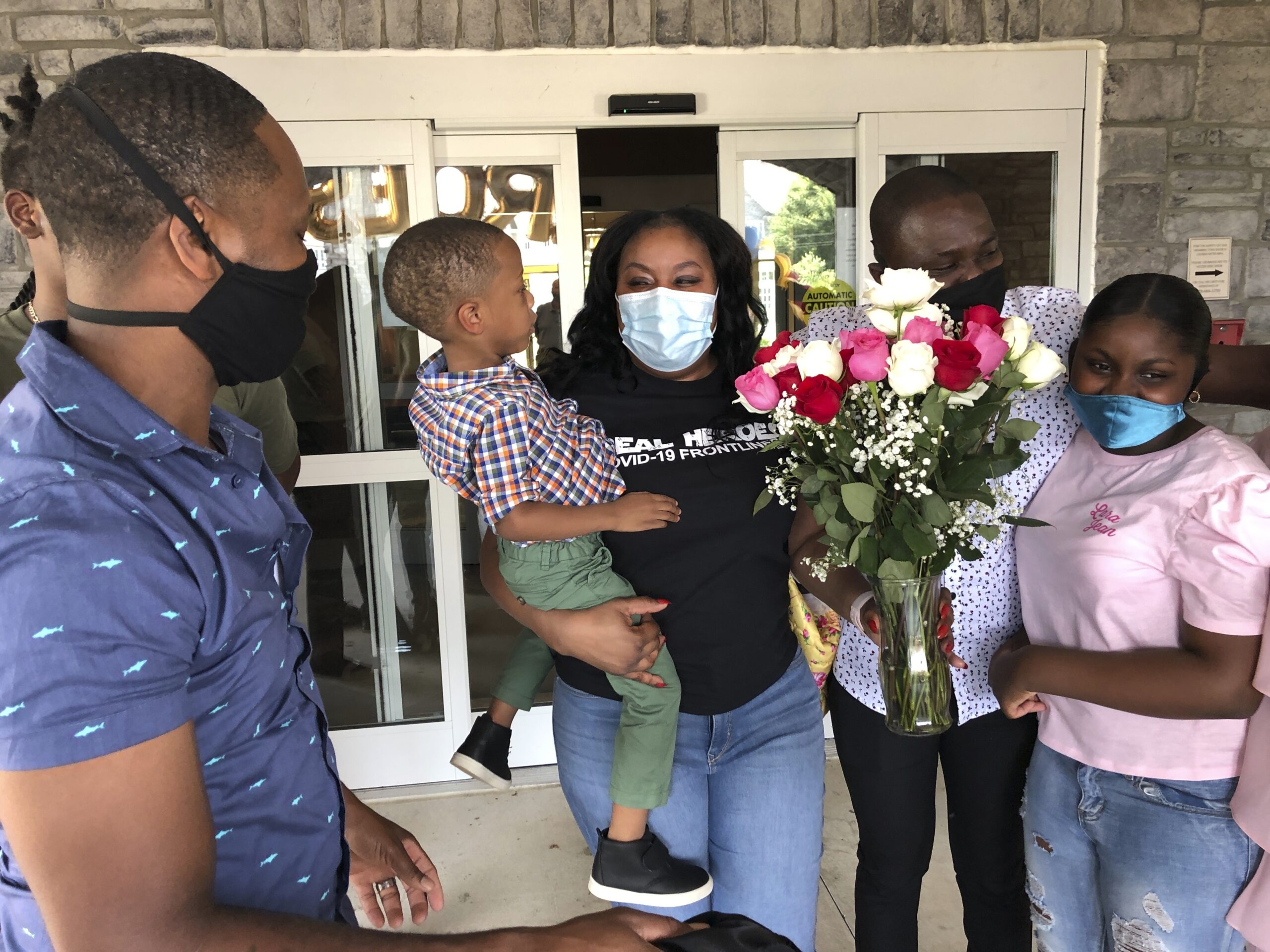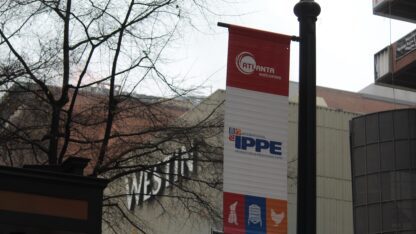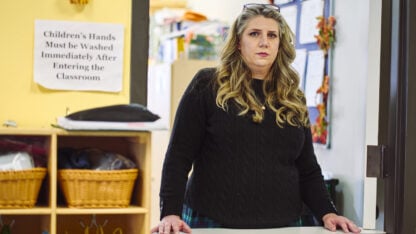Nadia Williams shrieked with surprise and emotion Saturday as she embraced her mother for the first time since agreeing nearly three months ago to live at the elder-care facility where she works.
Park Springs just outside Atlanta took the unusual approach of having roughly 70 employees shelter in place on campus to protect its residents from the coronavirus. It lifted that restriction over the weekend, and Williams and other employees headed home for the first time since March 30.
“It shocked me a lot,” Williams, 30, said about seeing her mom. “I didn’t think I was going to be able to see them for another few weeks.”
Nursing homes — among the hardest hit places by the pandemic — have limited visitors and screened people for the virus. Park Springs’ administrators said they feared those strategies might not be enough to keep their more than 500 residents safe. But the staff lockdown was not a measure they could sustain forever, said Donna Moore, chief operating officer of the company that owns Park Springs.
“This is week eleven,” Moore said on a Zoom call Wednesday.
Around the country, coronavirus cases are rising in nearly half the states, according to an Associated Press analysis, a worrying trend that could intensify as people return to work and venture out during the summer.
Park Springs was shifting to “personal responsibility and safety measures,” Moore said, including requiring staff to take a coronavirus test before coming back on Monday.
The return home Saturday was bittersweet for staff, who gathered at a lunch before their departures to share their experience. Some cried and hugged each other. The company gave each of them a plaque inscribed with their names and a record of their sacrifice: “COVID-19 Shelter-In-Place 2020.”
“Sometimes I said, ‘I can’t do this,’” O’Neil Marriott, a maintenance technician, recalled. But he said the rest of the staff gave him support to stay.
“I appreciate everyone in here because you really made me feel like family,” he said.
The staff walked out to meet loved ones to music and applause from Park Springs’ administrators. Some had carts loaded with shopping bags of supplies they had brought to sustain them during the lockdown.
Williams, a health care administrator at Park Springs, missed her sister’s wedding to shelter in place. She said she also missed laughing with her boyfriend, Lanre Adabale, who was also there to greet her and said the experience had strengthened their relationship.
“This sacrifice that she just gave at her place of work means a lot to me,” he said.
Teisha Roberts, a nursing director, embraced her husband, mom and five children, but clung to her youngest, 3-year-old Rojuane.
“Today, I get to hold him, squeeze him,” she said. She bought a house while she stayed at Park Springs and said she looked forward to seeing it for the first time, taking a shower in her own bathroom and eating a good Jamaican meal.
The employees who stayed represent a fraction of Park Springs’ normal 300-person staff. Another 30 or so worked from home, but the majority were furloughed.
Moore said the senior home was shifting to two, 12-hour shifts instead of three, eight-hour shifts to reduce the number of employees on campus as another safety precaution. It plans to bring 90% of furloughed staff back, but will lay some people off, she said.
Park Springs’ lockdown started after four employees and a resident tested positive for the virus. They all recovered. Since the lockdown, the facility has seen two additional cases — both residents. One of those residents — a 96-year-old dementia patient — was visited by her daughter and a caregiver after doctors said she had little time left to live and then tested positive. She later died. The other tested positive after requiring medical care off campus and recovered from the virus.
For most people, the coronavirus causes mild or moderate symptoms, and the vast majority recover. But for some others, especially older adults and people with existing health problems, it can cause more severe illness, including pneumonia or death.
Moore slept on an air mattress in a tent in a community hall while also staying on-site at Park Springs. She also went home for the first time since the end of March on Saturday and said the experience had given her a new appreciation of the importance of caring for people. She made a change for her return to work on Monday: a new office location.
“I’m not going back to a quiet place on a hidden-away hallway,” she said. “I want to be with these people and engaging with them every day.”








